Three Summits and Three Priorities - By Eyad Abu Shakra, Asharq Al-Awsat
I vividly remember the day in 2000 when one of Lebanon’s leading religious Muslim figures visited the UK, and the meeting he had with a group of London-based Lebanese journalists in the Lebanese Embassy. It was an unforgettable occasion, not only because his eminence was an exceptionally wise and well-informed man, but also because he was witty and easy to talk to.
With infectious smiles, the Sheikh began with a chat in which he expressed his admiration of London; its cleanliness, greenery and beautiful architecture, and then moved on to the main point of his interest. He began comparing London to Beirut with its cement jungles and chaos; and from Lebanon, moved with criticism to the wider scene, i.e. the Arab situation, and dwelled at length on the Palestinian-Israeli conflict.
At that time, the Camp David Summit hosted by then US President Bill Clinton between the Palestinian leader Yasser Arafat and then Israeli Prime Minister Ehud Barack had just ended. As we know, at the end of that summit Clinton blamed Arafat for the failure in reaching an agreement, with the issue of Jerusalem proving to be the stumbling bloc.
Tackling Jerusalem, the Sheikh – as I recall – said: “Well, as you are aware, I am a man of religion not a politician, so I have no right to lecture to politicians about politics.” He then added, wading into the stalled Israeli – Palestinian peace talks “… moreover, I am Lebanese not Palestinian; thus, I cannot outbid any Palestinian leader. This is why I say Yasser Arafat is free to deal as he pleases with Haifa and Acre, negotiate over Jaffa, and give away Nablus and Hebron, but as far as Jerusalem is concerned, I say that it is not his. Jerusalem belongs neither to Yasser Arafat nor to any Palestinian leader. It rather belongs to me too, as well as to every Muslim from Indonesia to Senegal”.
Indeed, I was deeply touched by those words, because they are true, and they provide Palestinian negotiators with two advantages:
1- They do not have to gratuitously abandon the holy city in a pointless and thankless negotiation process, carried out against a disadvantageous background and prejudicial international sponsorship.
2- They would no more be outbid by other Arabs and non-Arabs in the Muslim world. Furthermore, if the Arabs prove lacking in their zeal to “liberate Jerusalem”, then why don’t noisy out-bidders put their money where their mouths are, and act instead of talk, since “There is no advantage for an Arab over a non-Arab except through piety”. Moreover, and even though the Quran was created in Arabic, the Arabs are not necessarily better Muslims than others.
I am recalling this occasion after:
- The three summits for the GCC, Arab and Muslim states were hosted in Makkah, Saudi Arabia against a backdrop of hostile Iranian threats.
- The clamor surrounding what is described as the “deal of the century” following the relocation of the US embassy to Jerusalem and Washington’s declaration of the Israeli-occupied Syrian Golan Heights as “Israeli territories”.
- The ever-increasing anti-Muslim attitudes, sparked by terrorist acts committed by dubious individuals and groups throughout the world.
The three summits, I believe, came at a historical juncture, given that efforts have never been more ruthless to finish off the Palestinian cause and obliterate Jerusalem’s special status as a holy city for all three Abrahamic religions.
They also came as political aggression committed by Iran through its sectarian militias, has escalated to the point of targeting Makkah, after wreaking havoc in Iraq and Syria, dominating Lebanon, occupying Yemen and committing terrorist acts in Arab Gulf states.
Finally, they were held as it has become unacceptable to keep quiet over adventurist extremist groups that are spreading terror throughout the globe in the name of Islam, especially since this terror is causing a backlash of deep hatred against Muslims in the West and coincides with the rise in isolationist xenophobic policies against immigrants, refugees and globalization.
Thus, the clearly expressed and unanimous statement adopted by the Muslim leaders gathered in Makkah serves as a firm moral and ethical commitment towards a fair and comprehensive solution to the Palestinian cause and the fate of Jerusalem. As far as Iran is concerned, this declaration highlights to the whole world the dangers of its expansionist project that is threatening the social fabrics of Iraq, Syria, Lebanon and Yemen, after it destroyed dozens of cities and towns and displaced at least 20 million people in Iraq and Syria alone.
It was interesting too that the three summits mentioned that Muslims make up the majority of the world’s displaced and refugees. Indeed, while among those are Palestinians, who have been refugees for 70 years, there are now millions suffering a similar fate in several places in Asia and Africa, like Pakistan, Afghanistan, Bangladesh, Myanmar, Mali and others. Here it has to be said that terrorism that is nurturing Islamophobia is exacerbating the plights of the displaced and refugees, and could, in the next few decades, become a source of untold threats to Muslims everywhere.
Resolutions pertaining to extremism and terrorism must, therefore, be dealt with the same commitment accorded to Palestine and confronting Iran. This means moving forward with two parallel efforts: the first, is enhancing and promoting awareness, tolerance and values of coexistence in Muslim countries, as well as within the immigrant Muslim communities throughout the world. The second, is preventing regimes that are “trading” in “political Islam” from exploiting setbacks in the march towards openness and democracy in many Arab and Muslim countries to finance, sponsor and promote extremism.
The truth is that our Arab world, and the Muslim world as well, have suffered long enough, and may suffer more, if they continue to escape from one adventure to another, and confront one brand of extremism with another.
It is high time for those fueling extremism under any excuse, including confronting autocracy and dictatorship, knowingly or not, to realize that they are serving the interests of their adversaries.
Of course, things are not going to improve through resolutions and declarations any time soon, but the Arab world, from Algeria to the Sudan, and from Yemen to the Gulf and Fertile Crescent regions, will no doubt face more complications in the absence of rational and sincere approaches like the ones launched from Makkah.
Latest News
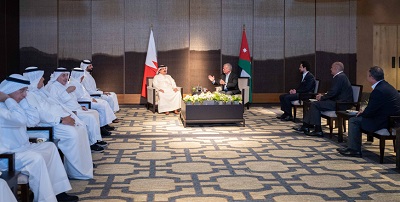 King, Bahrain monarch stress need to maintain Arab coordination
King, Bahrain monarch stress need to maintain Arab coordination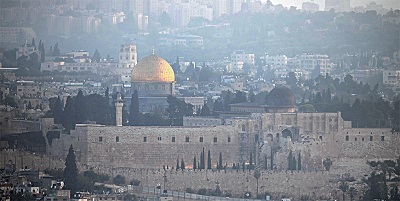 Security Council to vote Thursday on Palestinian state UN membership
Security Council to vote Thursday on Palestinian state UN membership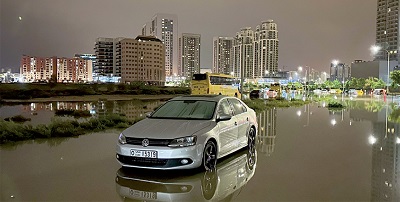 Dubai reels from floods chaos after record rains
Dubai reels from floods chaos after record rains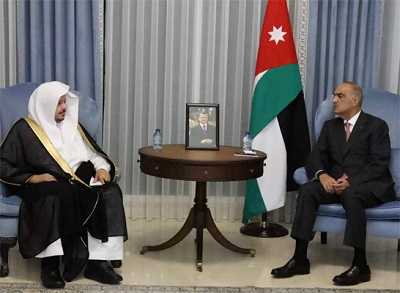 Khasawneh, Saudi Shura Council speaker discuss bilateral ties, regional developments
Khasawneh, Saudi Shura Council speaker discuss bilateral ties, regional developments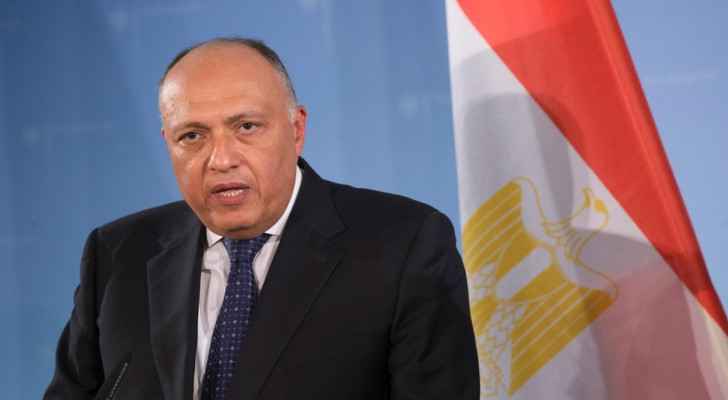 Egyptian Foreign Minister condemns potential Palestinian displacement as 'war crime'
Egyptian Foreign Minister condemns potential Palestinian displacement as 'war crime'
Most Read Articles
- Senate president, British ambassador discuss strategic partnership, regional stability
- Jordan urges UN to recognise Palestine as state
- JAF carries out seven more airdrops of aid into Gaza
- Temperatures to near 40 degree mark next week in Jordan
- Safadi, Iranian counterpart discuss war on Gaza, regional escalation
- UN chief warns Mideast on brink of ‘full-scale regional conflict’
- US vetoes Security Council resolution on full Palestinian UN membership
- Google fires 28 employees for protesting $1.2 billion cloud deal with “Israeli” army
- Biden urges Congress to pass 'pivotal' Ukraine, Israel war aid
- Israeli Occupation strike inside Iran responds to Tehran's provocation, reports say